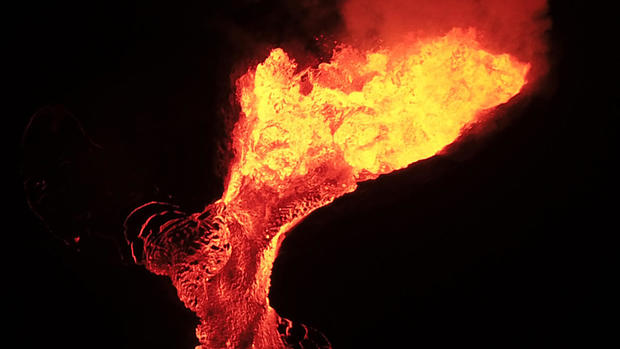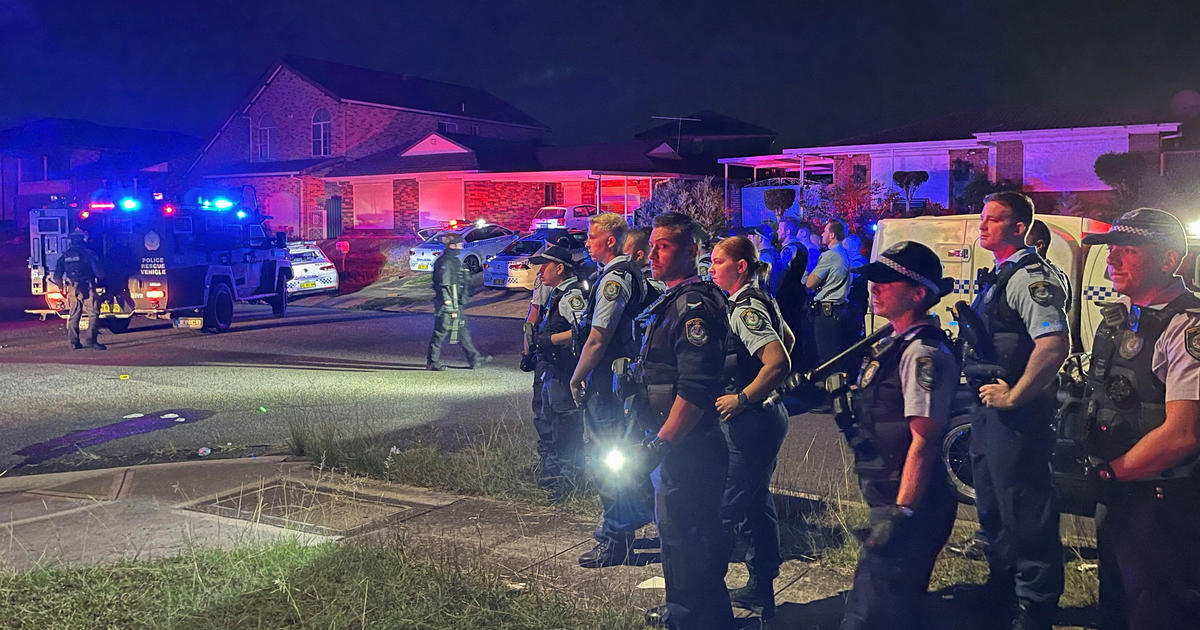New vents spewing lava, gas open up in Hawaii neighborhood
PAHOA, Hawaii -- Two new cracks spewing lava and gas opened up Monday on Hawaii's Big Island, where the Kilauea volcano has destroyed at least 35 buildings. Officials say there are 12 fissures in Leilani Estates in Pahoa, where more than 1,700 residents have been evacuated, CBS News' Carter Evans reports.
New video shows the fiery wrath of Kilauea bearing down on the neighborhood of Leilani Estates. The once lush landscape now looks more like a blackened moonscape after nothing in the lava's path was spared. It consumed telephone poles, trees and homes.
Monday, however, also brought a much-needed break. The eruptions slowed down, and authorities are allowing evacuees to return to their homes to pack their most essential items. Residents of the evacuated subdivision can check on their properties from 7 a.m. to 6 p.m. every day until further notice, but residents must be prepared to leave on short notice, according to officials.
Hawaii Governor David Ige has urged people to remain cautious.
"Everyone knows that it's not over," he said.
Janet Babb, a USGS geologist, echoed that message.
"There's still magma within the rift zone," she said, CBS Honolulu affiliate KGMB-TV reports. "In the foreseeable future, this eruption is likely to continue."
Leilian Estates is located in the Puna district, a region of mostly unpaved roads of volcanic rock about a 30-minute drive from the coastal town of Hilo. Puna has thick jungle as well as dark fields of lava rock from past eruptions. The gently sloping volcano dips from its summit to Puna's white sand beaches and jagged sea cliffs.
For many people outside Hawaii, it's hard to understand why anyone would risk living near an active volcano with such destructive power. But the people here are largely self-sufficient and understand the risks of their location.
The slopes of Kilauea offer a lush rural setting and affordable land that contrasts sharply with Hawaii's more expensive real estate. The region has macadamia nut farms and other agriculture along with multimillion-dollar homes with manicured lawns. Other houses are modest, sitting on small lots with old cars and trucks scattered about.
One resident, Kelena Kealoh, moved to the area last September with his wife and two young daughters after fleeing California's wildfires.
"Everything was green," he said. "Look at it now -- it's all dead, dying."
"I was gonna raise my daughters here, but it doesn't look like it's gonna turn out to be the scenario we hoped," he said.
Amber Makuakane, a 37-year-old teacher and single mother of two, lost her three-bedroom house to the lava. She grew up here and lived in the house for nine years. Her parents also live in Leilani Estates.
"The volcano and the lava -- it's always been a part of my life," she said. "It's devastating ... but I've come to terms with it."
Homeowners use rainwater-catch tanks and cesspools or septic tanks. Many rely on solar power, and some live entirely off the electrical grid.
Sam Knox, 65, who was born in Hawaii and now lives just a few hundred feet from a volcanic fissure, said he decided not to leave, despite the nearby explosions and the lava being hurled into the sky and flowing across his neighbor's property.
"It was roaring sky high. It was incredible. ... Rocks were flying out of the ground," he said. Much of the area filled with lava in just four hours.
Michael Clemmons also decided not to evacuate. He says almost all of his life savings is in his home, which is just a few hundred yards away from the lava and noxious smoke.
"You know these things happen and they've happened to other people. It happened to me now so, you know, I'll do the best I can and go on," he said.
The state's Insurance Division says those impacted by the mandatory evacuations, fire, smoke or noxious fumes may be able to start claims. The state says homeowners should check with insurance companies about their policies.




